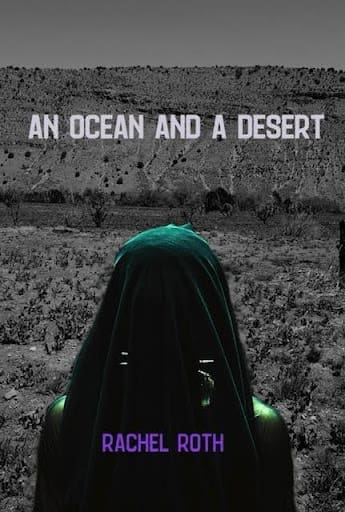Chapter One
“Their chief is Crom. He dwells on a great mountain. What use to call on him? Little he cares if men live or die. Better to be silent than to call his attention to you; he will send you dooms, not fortune! He is grim and loveless, but at birth he breathes power to strive and slay into a man’s soul. What else shall men ask of the gods?”
― From Robert E. Howard’s Conan of Cimmeria.
*
He prayed for it to stop, wishing to be unseen: to be forgotten. Even should all of humanity forget him, he would accept it—Bard just couldn’t take it anymore.
“No matter where I go or what I do, he’s there, staring at me.” Bard didn’t care if the psychologist, Joanita DeMillo, believed him or not; he needed to talk and she was paid to listen. “It started on the night I broke up with Angelo. It was an ugly scene, decades in the making.”
“I’m sorry to hear it,” she tried, meekly; the feeling was genuine, but the relationship had been bound to crash and burn. It had been obvious to her, and certainly to him.
Bard shook his head. “He was cheating on me and didn’t have the balls to break up. I’m not sure he ever even liked me. I had money from some royalties and that’s all he really cared for. Residuals and bragging rights, having me as his trophy boy—the artist.
“I hate him.” Even as he said the words, Bard knew he only half meant them. He hated himself more than he could hate Angelo, who had always presented himself as he was: a tremendous piece of shit.
“He was somewhat aggressive, wasn’t he?” DeMillo asked politely. Angelo had a history of beating Bard, shouting and manipulating him.
“I’m the only one who cares about you. They’re not your friends. Why did you let him talk like that to you? Why are you such a coward?
“Why are you so useless?”
Angelo was a hedonist, seeking his own pleasure and stopping at nothing to obtain it. Bard had thought to see a core of decency in his boyfriend, something approaching kindness. At last the scales had fallen from his eyes. Not only to have found Angelo with his cock in another man’s mouth, but the state of that man. Bruised, anemic, and needle marks like a deadly constellation against the ashy skin.
A mummified teenager. His eyes were haunting and beyond suffering, dead and numb. Bard recognized himself in those eyes and felt his throat burning with acid. Angelo reacted as he had expected.
“What? Can’t I have a fucking moment for myself? Go home and try not to piss the bed this time.”
Bard forced himself back to the present, half-awake in the shadows in the confines of the little doctor’s office. A potted plant stood in a corner looking dejected, a sun-bleached calendar marking the year of 1981 hung from the wall, and every wall was covered by green patterned wallpaper.
The doctor waited patiently for Bard to continue, letting him form the words, but all he could see were the patterns, how they seemed to move. Bard mouthed syllables which he could not voice or even comprehend himself, reading a language so ancient it was alien to him.
Still the writing on the wall, or walls, didn’t need to be read in order to be known for what it was: a warning. He would fall to either madness or death and nothing would stop it. From the parade of runes, a face peered with a single baleful eye.
“I was outside. The night air cooled down the fire in my head and I started to shake. I was so angry, so lost. I think that maybe I deserved it. That I was weak, so he cheated on me. That weak people don’t deserve love, or respect. He never loved me…”
“Everyone deserves love,” DeMillo tried, her concern genuine. Despite having heard such things uttered a thousand times before, she hadn’t been numbed to them.
“No. Some people weren’t made for it. Maybe weakness has nothing to do with it and was just what I felt at the time, but I know it is not for everyone.”
“Do you mean Angelo or yourself?”
“I don’t know,” Bard admitted, hiding his face to shield himself from the glare of the one-eyed man. “I saw him then, that night, out in the street. He was staring at me from across the road, his face hard to see. I thought it was a homeless man at first.
“His hair and beard were so long and dirty, matted with shit. Half his face was covered with hair, and he was staring at me with this horrible yellow eye. He was all hunched, covered by some kind of quilt.”
“Did he say anything?”
“He … he made a sound.” Like the wind, like a trumpet announcing judgment day, a fog horn from the end of time cutting through the mist of ages. “He pulled back his hair,” and the stranger peeled back also the lids over both his eyes, “his left eye was missing,” a cavernous hole, a black chasm on a purple pit, his right eye yellowed and reddened, amber colored.
“You said you thought he was a homeless man. He wasn’t?”
Bard felt if left to his nervous ticks he might chew the inside of his cheek until he bled. He pried the answers from himself with tremendous effort. “It wasn’t a man at all.”
Outside Doctor DeMillo’s office the wind whistled like an oncoming train. She looked through the half shielded window panes to witness the sudden swaying of trees in the warmly lit afternoon. “What do you mean, Bard?”
“It was God.” Bard was again standing in the night, street lights dimming as the single-syllable lament grew deeper and louder. Winds grew violent, dust and filth were swept and some of that grime latched to Bard’s skin and clothes. He flinched and shouted in more surprise than pain; some of the dust had gotten into his eye. “I closed my eyes for a moment, and when I looked back, he was gone.”
DeMillo wrote something in her notebook and refrained to comment. Bard could practically see the word “delusional” materialize over her head, her silence accusing him of tipping over the edge. DeMillo would likely be sending Bard to speak with a psychiatrist, to have him followed by someone who could medicate him. “What happened next?”
“I walked home.” Bard arrived at his apartment feeling miserable. Unable to tell fact from fiction, he locked his door and put on the latch; exhausted as he was, he dragged the heavy couch to block the door further. He would have done more to barricade himself but all he could manage was lay on the sofa and fall asleep. “I slept and there were no dreams I can remember. Next morning I put all of Angelo’s things outside the building. Haven’t seen him since, and the homeless just took off with his stuff. I’ve had the locks changed.”
“That will have consequences. I’m afraid for you, Bard.” He knew she would say it next, the thing she had said before and which haunted him since she first uttered the words so many sessions ago. “I see you very alone, Bard.”
“It’s fine to be alone.”
“By choice. Sometimes. We’re all different, but isolation comes at a risk. You need to be able to trust others, to reach out, and what I see is a ship drifting further away from the shore. Have you been talking to anyone? Family? Friends?”
“I’m fine Doc. I’m not a talker, not outside our sessions.”
“I think you would talk more if Angelo had been more receptive to listening. You closed yourself to the world, and you kept feeding a bad habit.” There was a sad shadow of a smile on her lips. “Since he’s gone, maybe it’s time you changed course.
“Is there anyone you could try and reach out to?”
“Yes,” Bard lied, “some friends.”
It would have been unprofessional of DeMillo to question the veracity of the statement; she pretended to take notes while figuring out how to broach the topic.
“I would like to give you a number for a shelter. You don’t have to call,” she cut off Bard before he could protest, “but I want you to consider it. If you need it. I know it can be very hard to ask for help but I want you to try; if the time comes and you feel you have no one else to turn to. There are things we don’t want to share with family or friends either but we have to share with someone, anyone.
“There are burdens too great for a person to carry alone.”
She reached out with the piece of paper and the scribbled number. From outside, the coming storm, the swaying of tree branches, the rustling of leaves and the apparent gathering of storm clouds combined to sound like a nautical scene.
Bard was drowning, and here was a fellow sailor attempting a tenuous rescue by reaching out with a boat paddle. Why was it so hard to accept it?
“Have you been through something like this?”
DeMillo did not budge. “Yes,” was all she said and Bard took the paper.
“Thank you,” he said, “I’m sorry.”
“It’s not your fault, Bard. Not my case, nor yours. It’s not on you.”
He could have cried then, but likely the appointment was already running overtime. “But before you leave … You said this strange man was God. What did you mean by it?”
“Honestly,” Bard replied after thinking about it, “I’m not sure. He made me think of God, I guess.”
The doctor scribbled her final notes for the section and released her patient to flee from her watchful eye. Bard greeted the outside gladly, filling his lungs with the smell of rain and wet grass. A light drizzle filled the air with mist-like textures, and the sky grew darker with clouds, a sudden twilight borne mid-afternoon. Bard had always loved the rain. Anxiety and a bad temper had always made it feel like he had a fire inside his skull that only such weather seemed to cool off. Bard imagined the smoke wafting from under his eyelids, the paper with the number for the shelter still in his hand.
He had stayed in a shelter, some two years before. He saw others he felt were doing worse than him, and felt guilty he had taken space that had to be denied to someone else. Reason told him he was being a fool; that he had to survive, had to stay alive somehow, had been as much a victim as the others. Suffering was not a competition.
He had seen a woman holding her boy. If she was like him, as she was like to be, he could not begin to imagine how much harder she had it. Trying to explain things that shouldn’t require explanation, that simply were, to a world that doubted everything that touched you, as if your existence was a contradiction and the very nature of the reality you inhabited couldn’t be trusted.
Bard would never forget that little boy and his toy hammer. The woman kissed her son atop his head, caressed his auburn hair. “We’ll be fine,” she whispered to him, “we’ll be fine.”
Bard let go of the paper, watched it float to the sodden sidewalk and dissolve away like sugar. The idea of the shelter sickened him; trapped in that warmth but unable to open up; seeing himself reflected in the eyes of others. He didn’t need the shelter, not this time, he argued within himself. He had changed the locks; everything would be fine.















